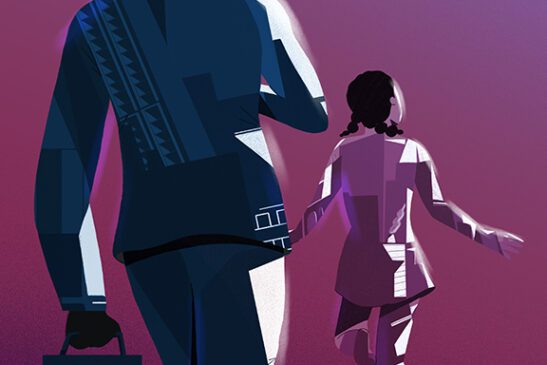
Rehearsals for longtime August Wilson interpreter Chuck Smith’s new production of Joe Turner’s Come and Gone are underway with an all-Chicago cast. Smith’s revival of Wilson’s second work in the playwright’s famed American Century Cycle follows Herald Loomis (A.C. Smith), who, in a journey in search of his estranged wife, must first contend with his own sense of heritage and identity in this story of spiritual and emotional resurrection.
 The cast features Harper Anthony (Reuben Mercer), Anthony Fleming III (Jeremy Furlow), TayLar (Bertha Holly), Gary Houston (Rutherford Selig), Kylah Jones (Zonia), Nambi E. Kelley (Mattie Campbell), Krystel V. McNeil (Molly Cunningham), Tim Rhoze (Bynum Walker), Shariba Rivers (Martha Loomis) and Dexter Zollicoffer (Seth Holly). Joe Turner’s Come and Gone appears April 13 – May 12 in the 856-seat Albert Theatre (opening night is Wednesday, April 24 at 7pm). Tickets ($25 - $90; subject to change) are available at GoodmanTheatre.org/Joe or by phone at 312.443.3800. Goodman Theatre is grateful for the support of The Elizabeth Morse Charitable Trust (Lead Funder of IDEAA Programming).
The cast features Harper Anthony (Reuben Mercer), Anthony Fleming III (Jeremy Furlow), TayLar (Bertha Holly), Gary Houston (Rutherford Selig), Kylah Jones (Zonia), Nambi E. Kelley (Mattie Campbell), Krystel V. McNeil (Molly Cunningham), Tim Rhoze (Bynum Walker), Shariba Rivers (Martha Loomis) and Dexter Zollicoffer (Seth Holly). Joe Turner’s Come and Gone appears April 13 – May 12 in the 856-seat Albert Theatre (opening night is Wednesday, April 24 at 7pm). Tickets ($25 - $90; subject to change) are available at GoodmanTheatre.org/Joe or by phone at 312.443.3800. Goodman Theatre is grateful for the support of The Elizabeth Morse Charitable Trust (Lead Funder of IDEAA Programming).
AUGUST WILSON NEW VOICES LOCAL COMPETITION RESULTS
On Monday, March 18, The League of Chicago Theatres in collaboration with Gilded Road Productions presented the 2024 Local Competition of August Wilson New Voices, an annual showcase of the best emerging talent across Chicagoland area high schools at the Goodman. Of over 300+ Chicagoland high school students who entered the 15th annual Monologue and “Designing August” Design Competitions, the top two places from each category will represent Chicago at the National competition held in Pittsburgh on April 26-29.
“The August Wilson New Voices program engenders the kind of community building that can only be done through theater, and our work with young students ensures the future generations of theater artists on and behind stages, as well as theater lovers and supporters,” said Quenna Barrett, the August Wilson New Voices Chicago Program Coordinator.
First and second place for the monologue competition went to Thornton Fractional North High Schoolers, with John McBeth III taking the first-place prize at the Chicago finals for his performance as the character Levee in Wilson’s Ma Rainey’s Black Bottom. Keniyah Stephenson took home the second-place prize with her performance as Berniece from The Piano Lesson. Samantha Gonzalez (Chicago High School for the Arts) came in third place with a performance as King Hedley from King Hedley II. The “Designing August,” portion of the competition, which focuses on scenic and design elements, returned for its fourth year. Janeci Correa (Chicago High School for the Arts) earned first place for the design competition; second place went to Vallesia Robinson (Aspira College High School) and third place went to Jamaria Stamps (CRW College Prep).
Adjudicators for the 2024 Monologue Competition included Sydney Chatman (former Goodman Maggio Fellow and founding director of The Tofu Chitlin’ Circuit); Luther Goins (playwright, director and theater consultant) and Ron OJ Parson (2022 Chicagoan of the Year for Theater and director for the world-premiere of Toni Stone). Adjudicators for the Design Competition included Andrew Boyce (set designer for world premiere of Dana H.); Kotryna Hilko (costume designer for How Blood Go); and Yvonne Miranda (costume designer for Ain’t No Mo). The free annual August Wilson New Voices Competition gives youth an opportunity to explore and share the richness of Wilson’s American Century Cycle through master classes and offering college scholarships. Program participants encountered Wilson’s ten-play cycle and received coaching from teaching artists to prepare their monologues for competition.
Born and raised in the Hill District of Pittsburgh, Pennsylvania, August Wilson (1945-2005) authored the American Century Cycle of 10 plays, including Gem of the Ocean, Joe Turner’s Come and Gone, Ma Rainey’s Black Bottom, The Piano Lesson, Seven Guitars, Fences, Two Trains Running, Jitney, King Hedley II and Radio Golf. These works explore the heritage and experience of African Americans, decade by decade, over the course of the 20th century. Goodman Theatre was the first in the country to have produced every play in Wilson’s cycle. In 2003, Wilson made his professional stage debut in his one-man show How I Learned What I Learned. Wilson’s work garnered many awards, including Pulitzer Prizes for Fences (1987) and The Piano Lesson (1990); a Tony Award for Fences; Great Britain’s Olivier Award for Jitney; as well as seven New York Drama Critics Circle Awards for Ma Rainey’s Black Bottom, Fences, Joe Turner’s Come and Gone, The Piano Lesson, Two Trains Running, Seven Guitars and Jitney. Additionally, the cast recording of Ma Rainey’s Black Bottom received a 1985 Grammy Award and Wilson received a 1995 Emmy Award nomination for his screenplay adaptation of The Piano Lesson. On October 16, 2005, Broadway renamed the theater located at 245 West 52nd Street the August Wilson Theatre.
Full Company of Joe Turner’s Come and Gone (in alphabetical order)
By August Wilson
Directed by Chuck Smith
Harper Anthony…..Reuben Mercer
Anthony Fleming III……Jeremy Furlow
TayLar…..Bertha Holly
Gary Houston……Rutherford Selig
Kylah Renee Jones……Zonia
Nambi E. Kelley…….Mattie Campbell
Krystel V. McNeil…...Molly Cunningham
Tim Edward Rhoze…..Bynum Walker
Shariba Rivers….Martha Loomis
A.C. Smith…..Herald Loomis
Dexter Zollicoffer…..Seth Holly
Creative Team
Associate Director/Choreographer/Intimacy Consultant…Cristin Carole
Set Designer….Linda Buchanan
Costume Designer…Evelyn Danner
Lighting Designer…Jared Gooding
Sound Designer and Composer…Pornchanok Kanchanabanca
Understudies for this production include Sean Blake (Jeremy Furlow/Bynum Walker), Stacie Doublin (Bertha Holly/Martha Loomis), Kristin E. Ellis (Mattie Campbell/Molly Cunningham), Anthony Irons (Harold Loomis), Bill McGough (Rutherford Selig), Jean-Luc Nazaire (Reuben), André Teamer (Seth Holly) and Riley Lauren Wells (Zonia).
Casting is by Lauren Port, CSA. Neena Arndt is the Dramaturg. Mars Wolfe and Kimberly Ann McCann are the Production Stage Managers and Beth Koehler is the Stage Manager.
ENHANCED AND ACCESSIBLE PERFORMANCES AT GOODMAN THEATRE
Touch Tour* and Audio-Described Performance: Saturday, May 11, 12:30pm Touch Tour; 2pm performance – The action/text is audibly enhanced for patrons via headset.
ASL-Interpreted Performance: Friday, May 10 at 7:30pm – Professional ASL interpreter signs the action/text as played.
Spanish-Subtitled Performance: Saturday, May 11 at 7:30pm – An LED sign presents Spanish-translated dialogue in sync with the performance.
Open-Captioned Performance: Sunday, May 12 at 2pm – An LED sign presents dialogue in sync with the performance.
Visit Goodman theatre.org/Access for more information about Goodman Theatre’s accessibility efforts.
ABOUT GOODMAN THEATRE
Chicago’s theater since 1925, Goodman Theatre is a not-for-profit arts and community organization in the heart of the Loop, distinguished by the excellence and scope of its artistic programming and community engagement. Led by Artistic Director Susan V. Booth and Executive Director/CEO Roche Schulfer, the theater’s artistic priorities include new play development (more than 150 world or American premieres), large scale musical theater works and reimagined classics. Artists and productions have earned two Pulitzer Prizes, 22 Tony Awards and more than 160 Jeff Awards, among other accolades.
The Goodman is the first theater in the world to produce all 10 plays in August Wilson’s “American Century Cycle.” Its longtime annual holiday tradition A Christmas Carol, now in its fifth decade, has created a new generation of theatergoers in Chicago. The Goodman also frequently serves as a production and program partner with national and international companies and Chicago’s Off-Loop theaters.
Using the tools of theatrical practice, the Goodman’s Education and Engagement programs aim to develop generations of citizens who understand and empathize with cultures and stories of diverse voices. The Goodman’s Alice Rapoport Center for Education and Engagement is the home of these programs, which are offered for Chicago youth—85% of whom come from underserved communities—schools and life-long learners.
Goodman Theatre was built on the traditional homelands of the Council of the Three Fires: the Ojibwe, Odawa and Potawatomi Nations. We recognize that many other Nations consider the area we now call Chicago as their traditional homeland—including the Myaamia, Ho-Chunk, Menominee, Sac and Fox, Peoria, Kaskaskia, Wea, Kickapoo and Mascouten—and remains home to many Native peoples today. While we believe that our city’s vast diversity should be reflected on the stages of its largest theater, we acknowledge that our efforts have largely overlooked the voices of our Native peoples. This omission has added to the isolation, erasure and harm that Indigenous communities have faced for hundreds of years. We have begun a more deliberate journey towards celebrating Native American stories and welcoming Indigenous communities.
Goodman Theatre was founded by William O. Goodman and his family in honor of their son Kenneth, an important figure in Chicago’s cultural renaissance in the early 1900s. The Goodman family’s legacy lives on through the continued work and dedication of Kenneth’s family, including Albert Ivar Goodman, who with his late mother, Edith-Marie Appleton, contributed the necessary funds for the creation on the new Goodman center in 2000.
Julie Danis is Chair of Goodman Theatre’s Board of Trustees, Lorrayne Weiss is Women’s Board President and Kelli Garcia is President of the Scenemakers Board for young professionals.
